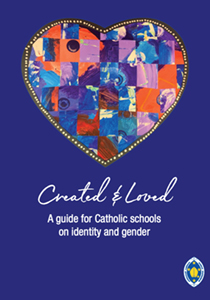
WelCom October 2022
Australia’s Catholic bishops have come out strongly against the medically and ethically controversial gender affirmative model of treatment for gender dysphoria which often involves the use of puberty blockers followed by cross sex hormones, and in some cases gender reassignment surgery.
In Created and Loved: A guide for Catholic schools on gender and identity, the Australian Catholic Bishops Conference outlined a pastoral approach to support schools as they navigate their theological, medical and legislative contexts and the individual needs of students who experience gender dysphoria.
Social changes in definition and language around sex and gender identity and the view that a sex is assigned by others at birth or a matter of individual self-belief are in conflict with the Catholic understanding of creation, but Catholic schools are called to remain faithful to Christian anthropology in their educational programmes and care of individuals, they said.
They pointed out that in many cases gender affirmative treatment causes permanent infertility but that model has become the dominant form offered to children and adolescents diagnosed with gender dysphoria or identifying as experiencing gender incongruence in Australia.
‘Traditional medical ethics and Catholic Church teaching maintain that health professionals should not disable or destroy healthy bodily organs or systems, or perform and/or advise actions that render a person incapable of parenting a child,’ the guide says.
‘There are also serious concerns regarding a young person’s capacity to consent to these treatments, as well as concerns with the safety of using puberty blockers and cross sex hormones on children and adolescents, particularly as many research studies continue to note the absence of reliable longitudinal data on this approach.
‘A school community has a responsibility to avoid cooperation with actions which risk unnecessary damage, or which limit a student’s future possibilities for healthy human growth and development.’
Rather, the bishops recommend the biopsychosocial model as less invasive and more closely aligned with a Catholic worldview, and which treats adverse childhood experiences alongside the gender incongruence by using a trauma informed model of mental health care.
‘Research data strongly suggests that, for the vast majority of children and adolescents, gender incongruence is a psychological condition through which they will pass safely and naturally with supportive psychological care,’ the guide says.
‘Studies quote between 80 to 90 per cent of pre-pubescent children who do not seem to fit social gender expectations are not gender-incongruent in the long term.’
In recommending a compassionate approach in ‘love and truth’, the guide suggests flexibility on uniform expectations and other ways to promote students’ sense of safety and reduce anxiety, and notes that in single-sex competitive competition where students are over the age of 12 years, ‘it may be lawful to exclude a student from a team where the strength, stamina or physique of competitors is relevant’.
Intended to assist Catholic education authorities in the development of their own local policies and procedures, the guide also recommends use of the terms ‘gender dysphoria’ or ‘gender incongruence’ when referring to students rather than using the term ‘transgender’, which it said infers ‘a fixed decision’ about one’s identity.
Source: Catholic Weekly, Brisbane